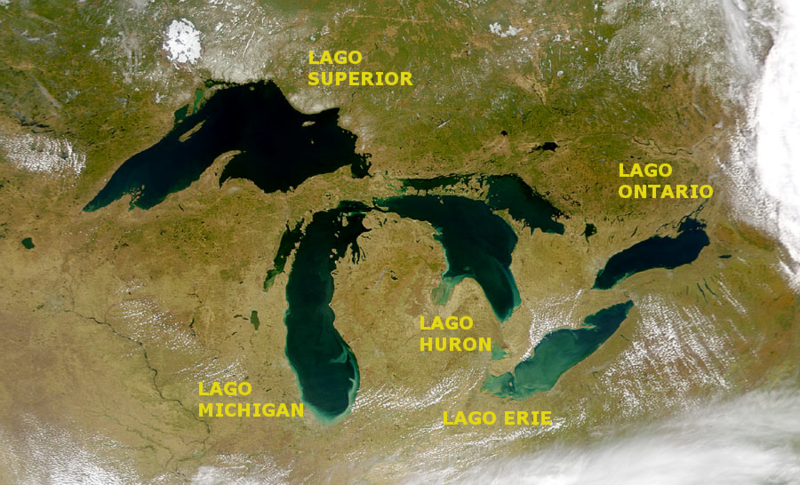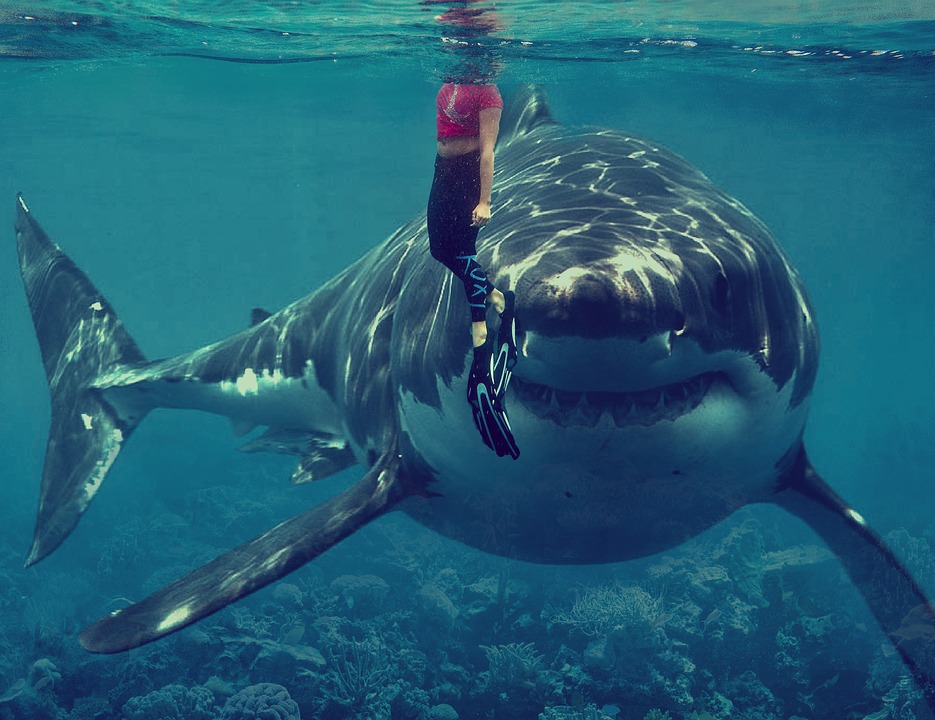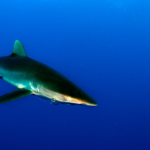The Laurentian Great Lakes are a chain of five freshwater lakes running across North America. These are landlocked lakes and contain the world’s largest freshwater reserve.
Sharks are saltwater creatures. Nonetheless, certain shark species have a proclivity to migrate to freshwater ecosystems. So, do sharks live in the Great Lakes of the United States?
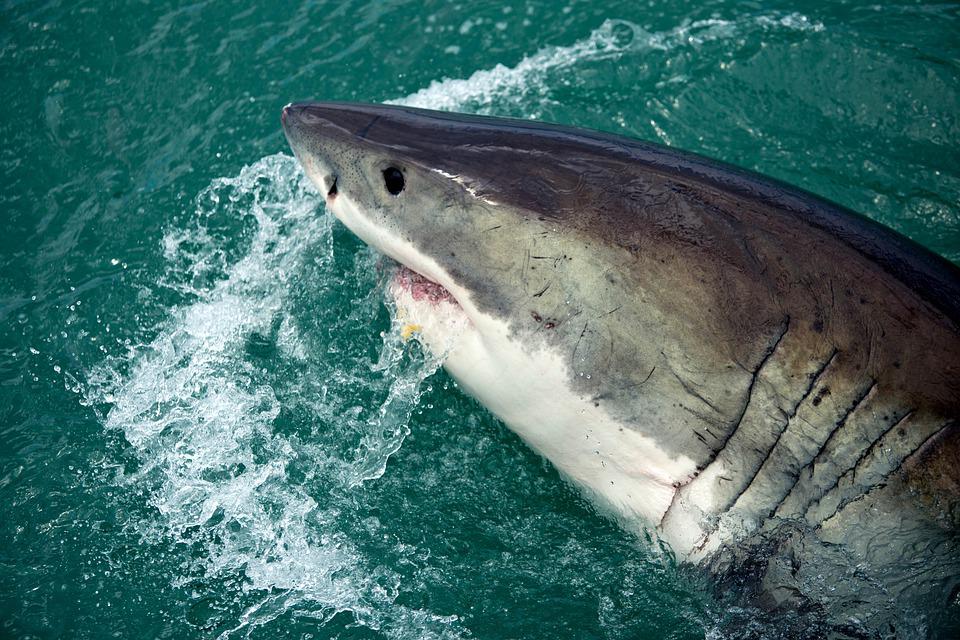
Thankfully, this article will attempt to answer this question in depth. In addition, we will answer some additional questions about the subject.
So, let’s get this journey started!
Are there sharks in the Great Lakes?
As we stated, the Great Lakes are landlocked and are freshwater sources. This puts a question mark on the presence of sharks in them. So let’s unfurl the truth.
It might sound weird, but there are indeed no sharks in the Great Lakes. One of the main reasons sharks do not prefer these lakes is that they fail to cope with the cold temperature. Also, there might be a lack of proper food for sharks in these lakes.
However, if one swam and ends up in one of these lakes, it might survive for a few days before heading towards the marine waterways.
What sharks live in the Great Lakes?
Sharks, by nature, are supposed to live in saltwater ecosystems. However, they simply cannot survive without the salt to process into their bodies.
Since sharks’ bodies are resistant to adaptation to freshwater, there have been no shark sightings in the Great Lakes. The only reports in this context have been of dead shark bodies being discovered on the lakeshore on occasion.
As a result, most reports of shark sightings in the Great Lakes are a hoax.
Are there any bull sharks in the Great Lakes?
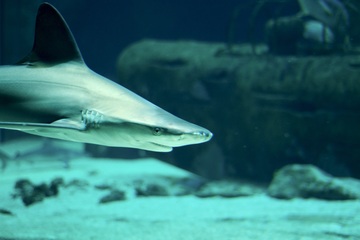
Bull sharks are a remarkable shark species. These sharks can live in freshwater environments. So, is it a possible shark species for the Great Lakes?
Although bull sharks have a physiological structure that allows them to live in freshwater, no sightings of them have been reported in the Great Lakes. This is because Lake Michigan and Superior are the deepest and coldest of all the lakes, making it extremely difficult for bull sharks to survive.
It is important to note that bull sharks can be found in freshwater sources such as the Amazon, Mississippi, and Central American lakes. Because of the warmer water in these areas, bull sharks can migrate here in search of food.
Are there any great white sharks in the Great Lakes?
The Great Lakes have distinct geography and climate patterns. But does it benefit great white sharks to live here? Let’s go exploring.
Great white sharks cannot live in freshwater. Furthermore, the Great Lakes are too cold for great white sharks to survive. As a result, there are no records of these sharks being found in these bodies of water.
The Great Lakes are surrounded by land. So the possibility of sharks migrating into these bodies of water is ruled out. However, even if great whites end up in any of these lakes during the summer, they will not be able to survive the freezing months.
Could a bull shark get into the Great Lakes?
One of the primary requirements for shark migration to the Great Lakes is connectivity to the ocean. Is it possible that bull sharks will migrate to these bodies of water?
Although the Saint Lawrence River links the Great Lakes to the Atlantic Ocean, bull sharks cannot migrate there. In addition, bull sharks avoid these bodies of water due to their cold temperatures.
There are also several barriers that these massive fish would have to overcome in order to reach these lakes. As a result, wired barriers, dams, and other barriers would prevent bull sharks from migrating into the Great Lakes.
Why do the majority of sharks fail to survive in freshwater sources?
Sharks are among the most feared and infamous predators. They do, however, have a flaw: most of them cannot survive in freshwater. But why is this the case?
Freshwater reduces shark buoyancy, which causes them to sink. To elaborate, sharks lack the air bladder, which helps fish survive in freshwater. As a result, it’s only natural that these apex predators aren’t adapted to living in freshwater.
Still, sharks such as bull sharks use their liver fats to create buoyancy and can thus survive in murky and freshwater environments. These are, however, not their permanent residences, but they migrate there in search of prey.
Are there whales in the Great Lakes?
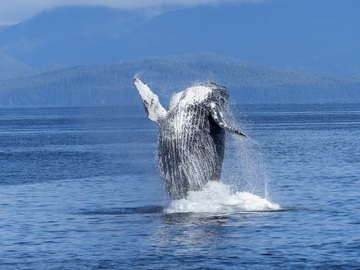
Whales are the world’s largest marine mammals. Whales, like marine water, can thrive for some time in brackish and freshwater, and they frequently migrate there in search of food.
The Great Lakes are devoid of whales. Although there have been reports of whale sightings in Lakes Superior and Michigan, most of them have been pranks or hoaxes.
As a result, whale enthusiasts hoping to see breaching water whales should avoid North America’s Great Lakes. Also, social media pages like the Lake Michigan Whale Migration Station should not be taken seriously because they result from pranks, hoaxes, and miscalculations.
Are there freshwater whales?
The largest members of the cetacean family, whales are versatile. They are, in essence, marine mammals. However, do they have the ability to live in freshwater as well?
Pure freshwater whales do not exist. This is because these mammals lack the physiological structure that would allow them to thrive in freshwater.
Here are some possible reasons why there are no whales in freshwater environments.
- Whales and their prey have adapted to life in saltwater.
- Freshwater sources are shallower than saltwater sources.
- The mineral content of saltwater aids healing.
- The majority of the whales’ food comes from saltwater sources.
- The buoyancy of saltwater is greater.
- Whales have the most space to survive in saltwater bodies.
- Marine waters are cleaner than freshwater ways.
Are there baleen whales in the Great Lakes?
Baleen whales are larger whales and have baleen plates instead of teeth. As a result, they need deeper and wider space to stretch out. So, are there any baleen whales in the Great Lakes?
Baleen whales have never been recorded in the Great Lakes. Since whales are not freshwater mammals, we cannot expect them to make these lakes, despite being deep, their homes.
Are there killer whales in the Great Lakes?
Killer whales are members of the dolphin family. There are also freshwater dolphins. This begs the question: Are there killer whales or orcas in the Great Lakes?
The Great Lakes are devoid of killer whales. Furthermore, no sightings of orcas have been recorded in the lakes’ prevailing geography.
While there are some freshwater dolphin species, killer whales have rarely been seen in freshwater environments. However, there have been reports of killer whales spotted in freshwater rivers such as the Thames, Rhine, and Elbe. This is because they can travel to freshwater sources searching for prey, but they cannot live there.
Are there beluga whales in the Great Lakes?
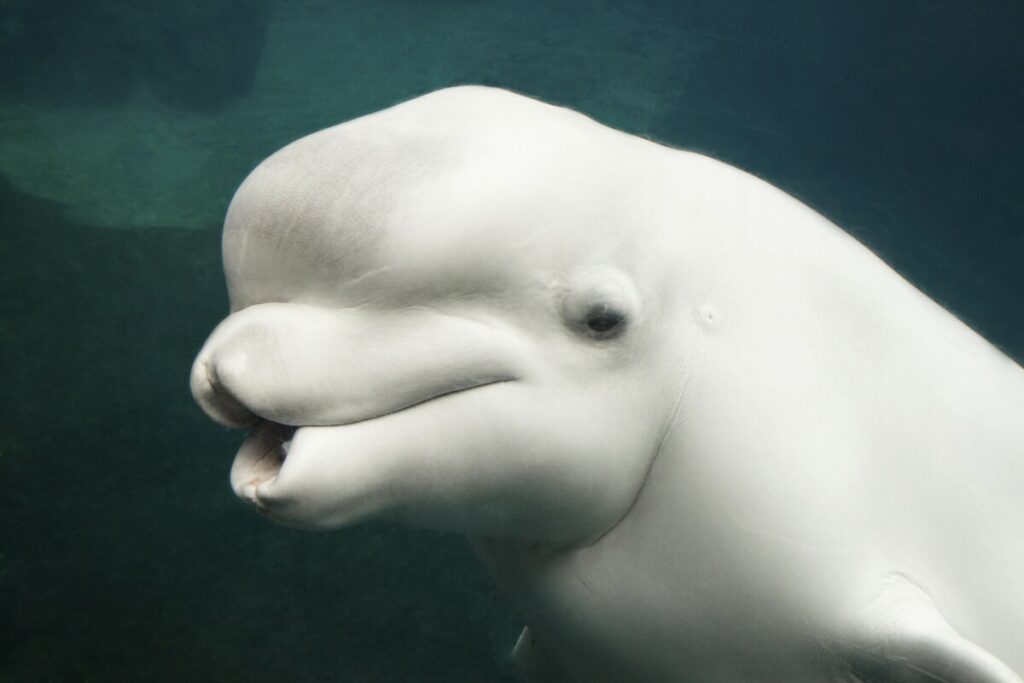
Beluga whales are the most strange-looking white-toothed whales. They are primarily found in the cold water of the Arctic regions.
Cold waters are a favorite of beluga whales, yet they do not live in the Great Lakes that receive freezing temperatures in colder months.
However, a population of beluga whales has been found to make the St. Lawrence estuary (Canada) their home. They are currently declared endangered, as their population has been on the decreasing side since the 2000s.
Summary
To summarize, sharks and whales were not designed to thrive in freshwater. Some of their species can survive in less salty and freshwater environments, but they do not make them their home. If you want to see some toothed grins and massive marine creatures, go to an aquarium or take a marine tour rather than visiting the Great Lakes of the United States.

